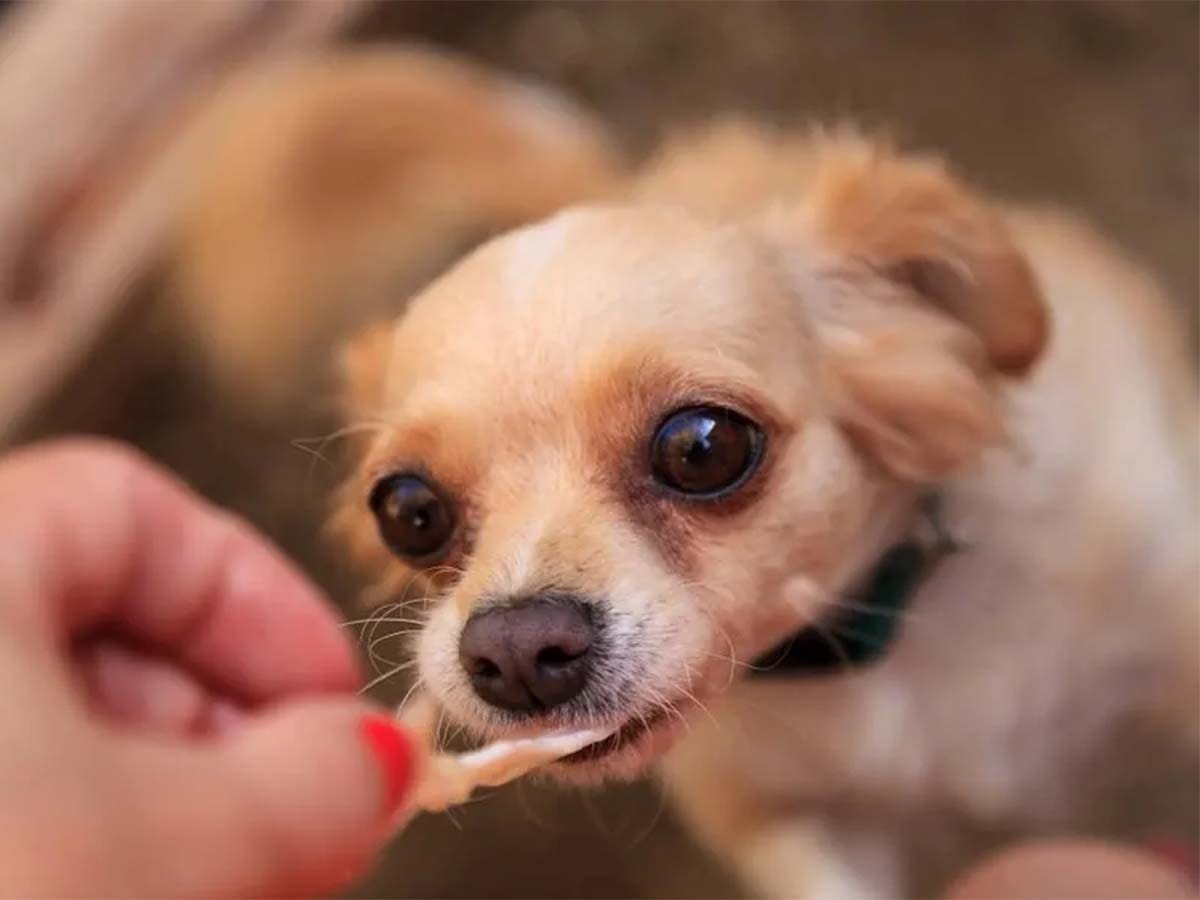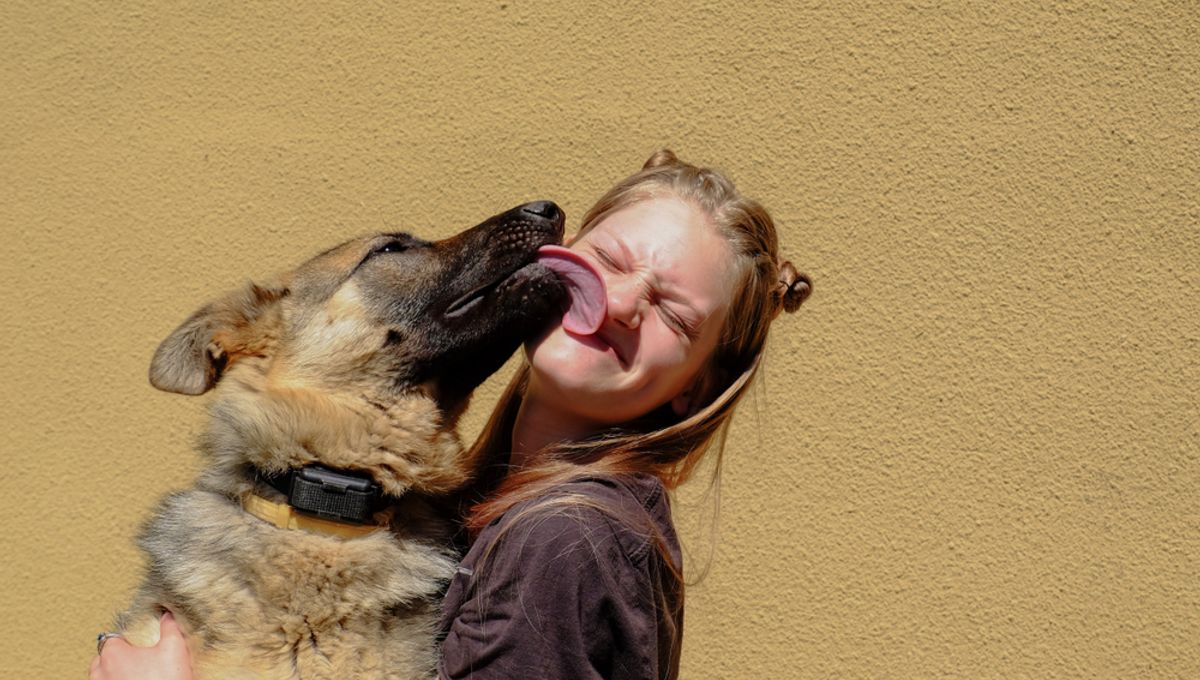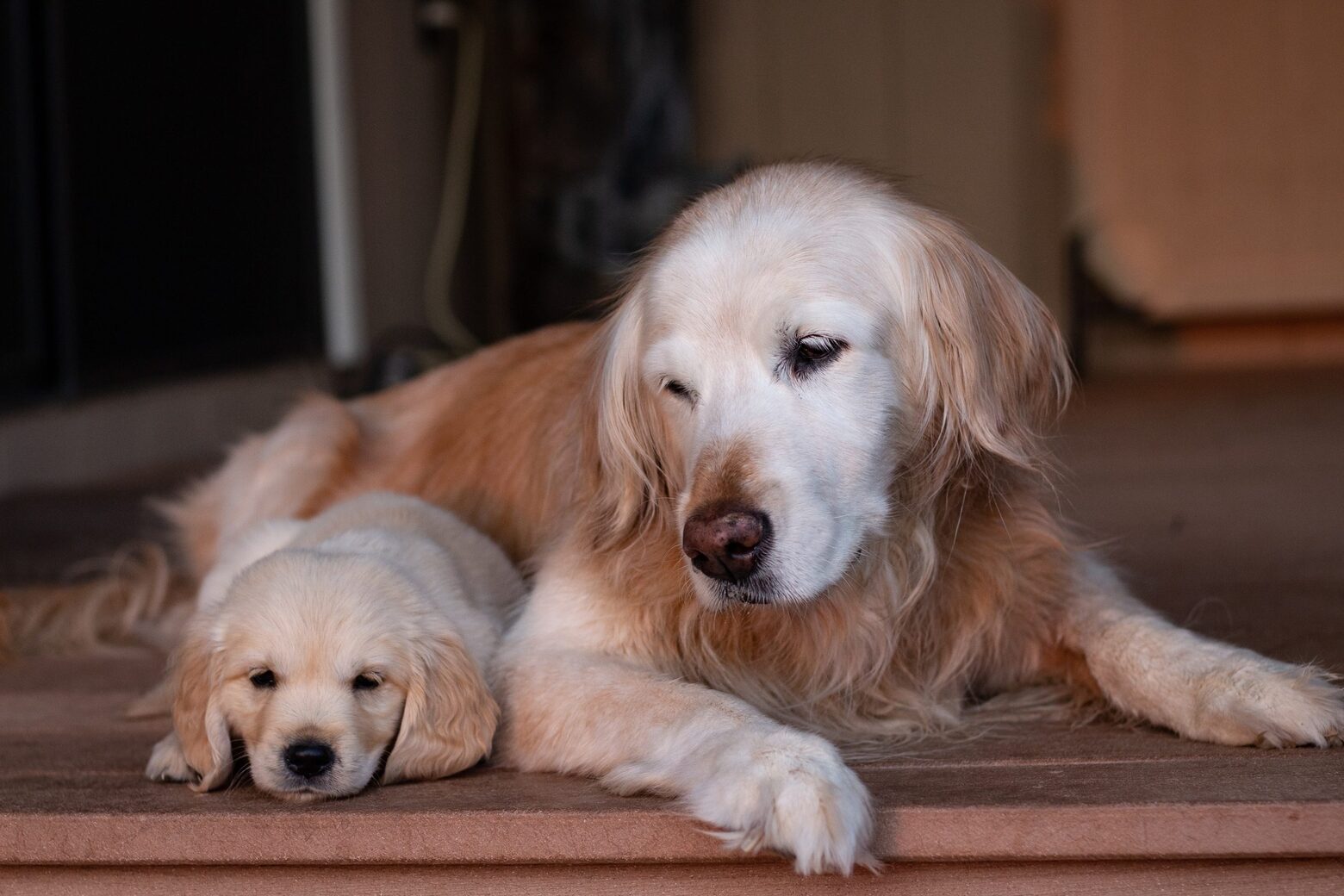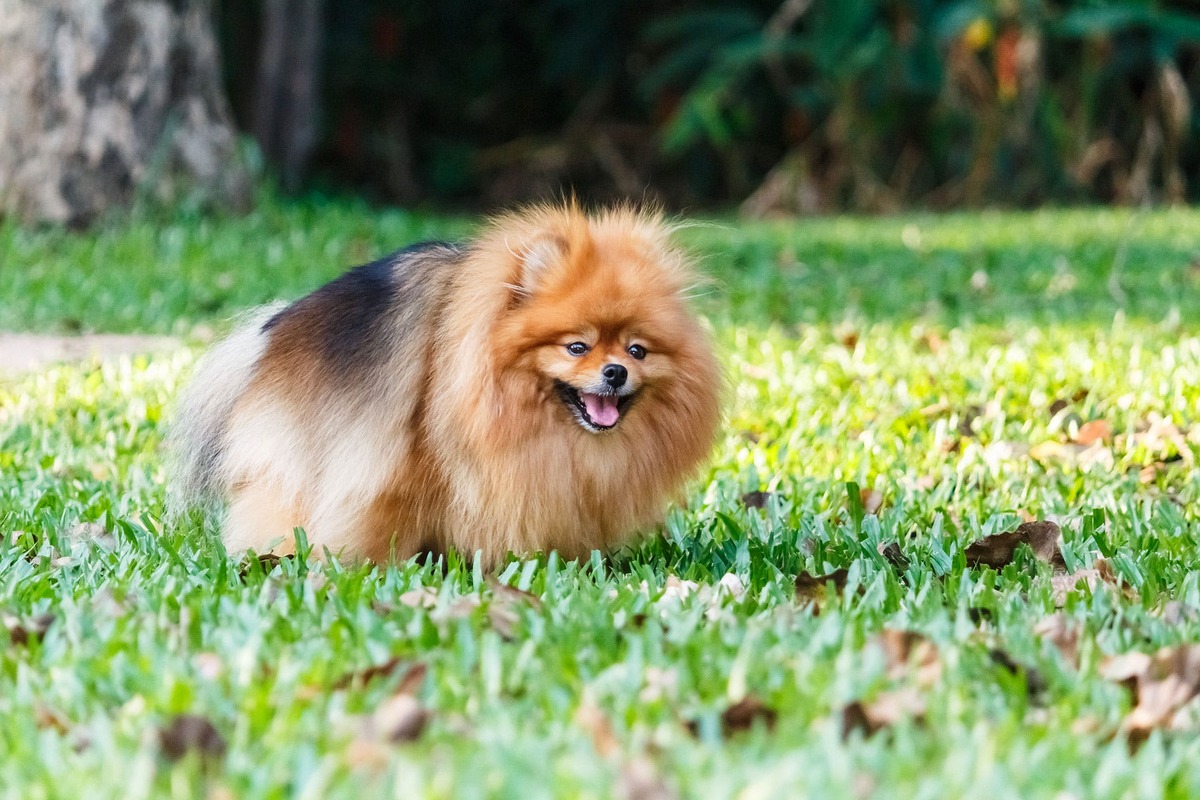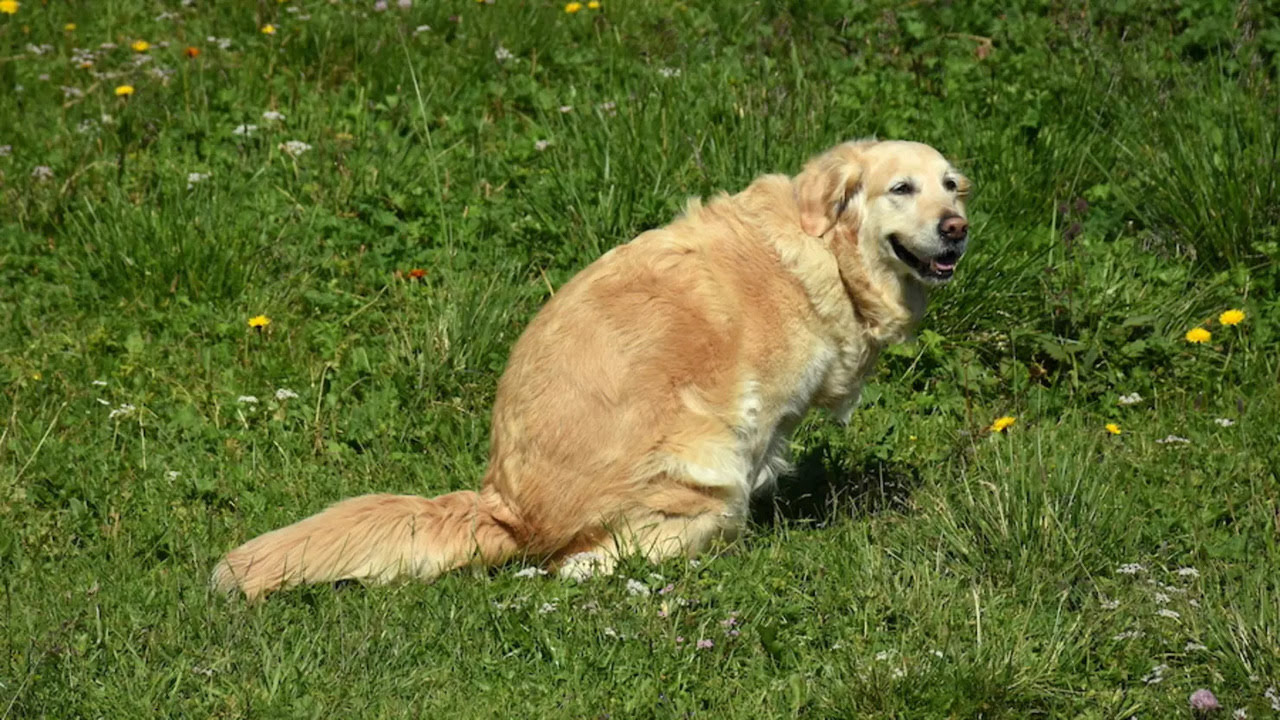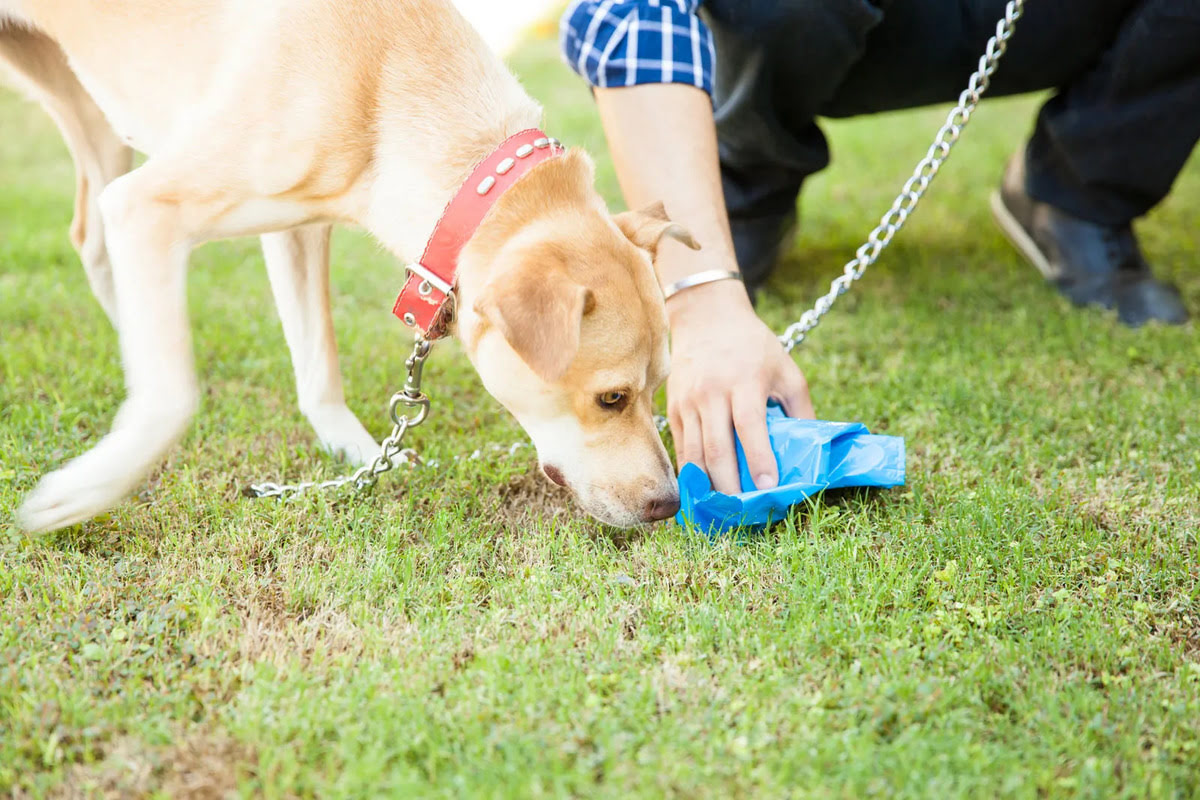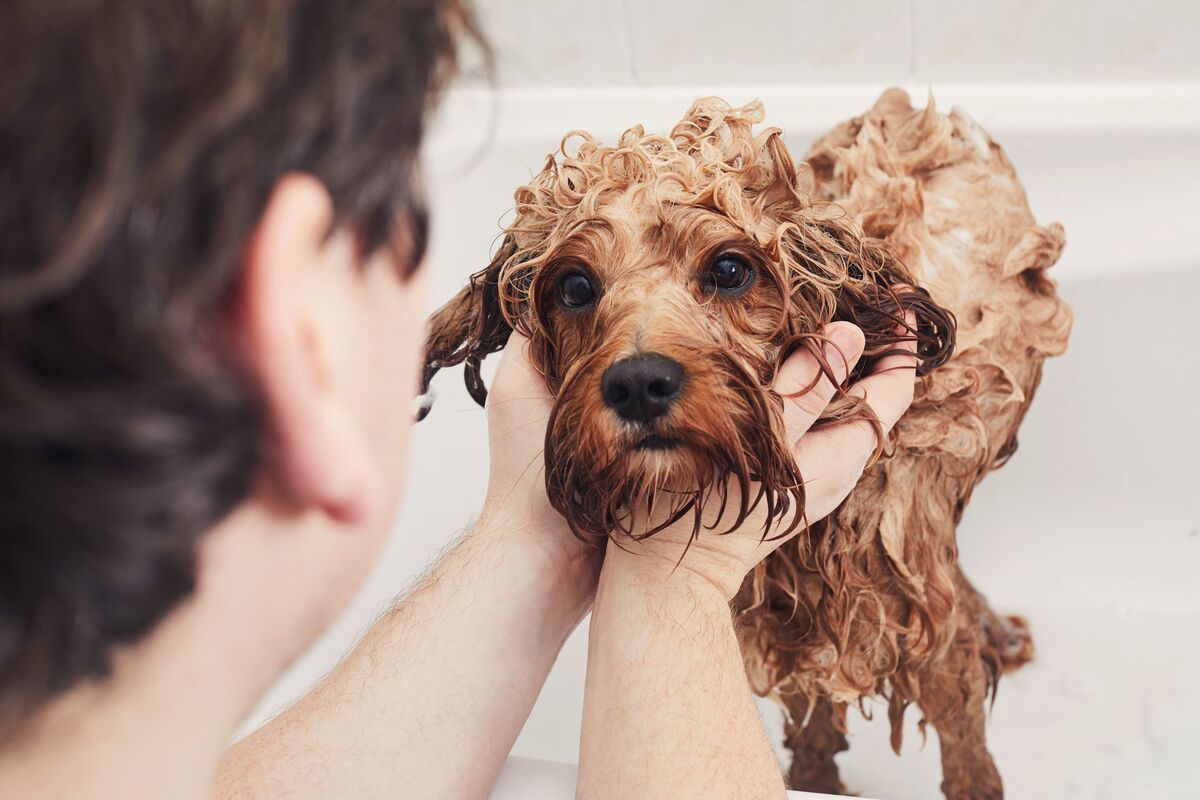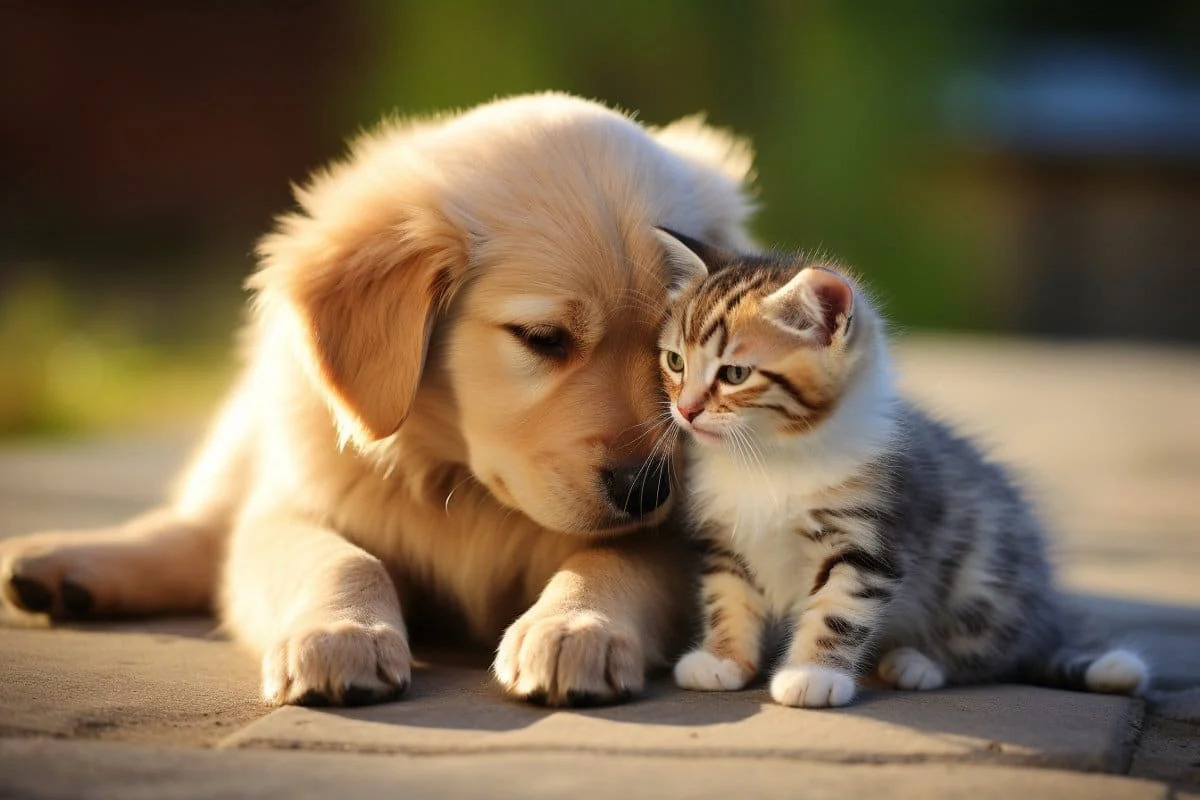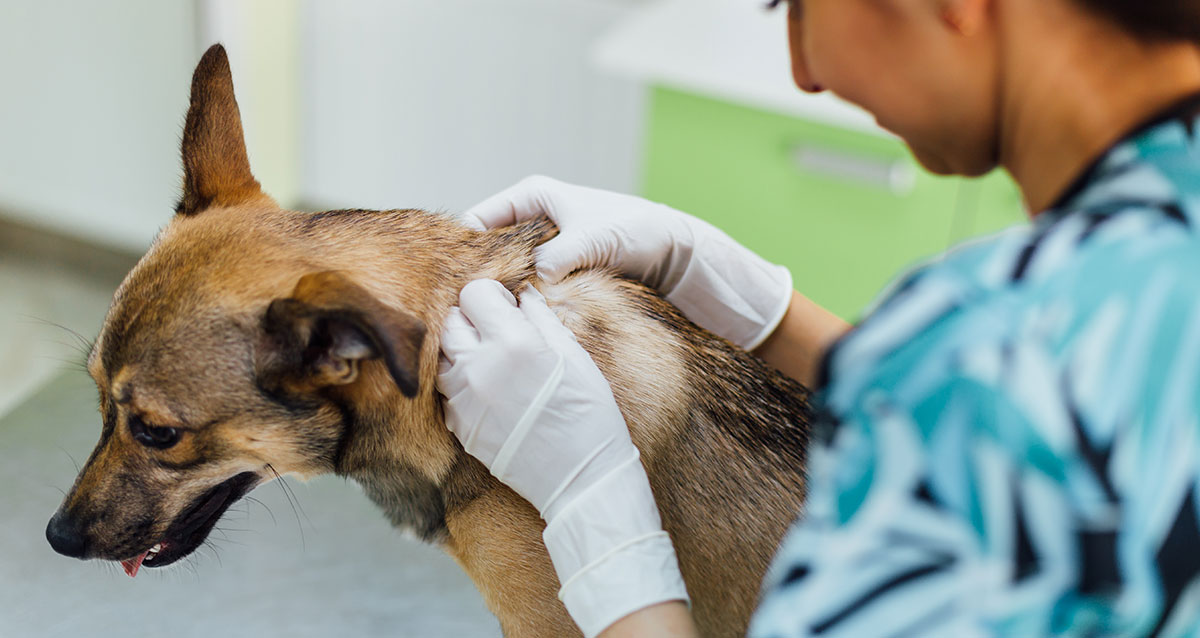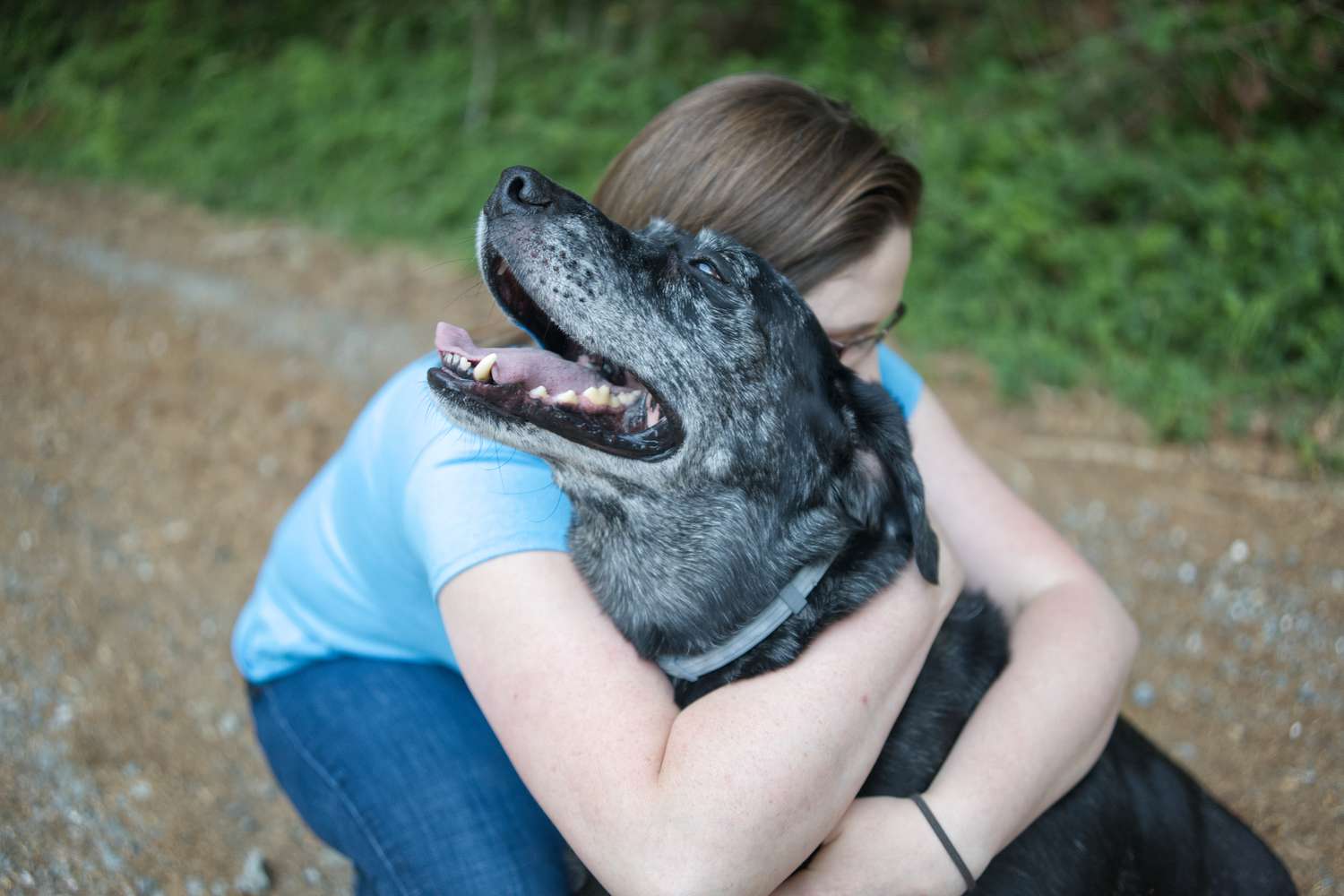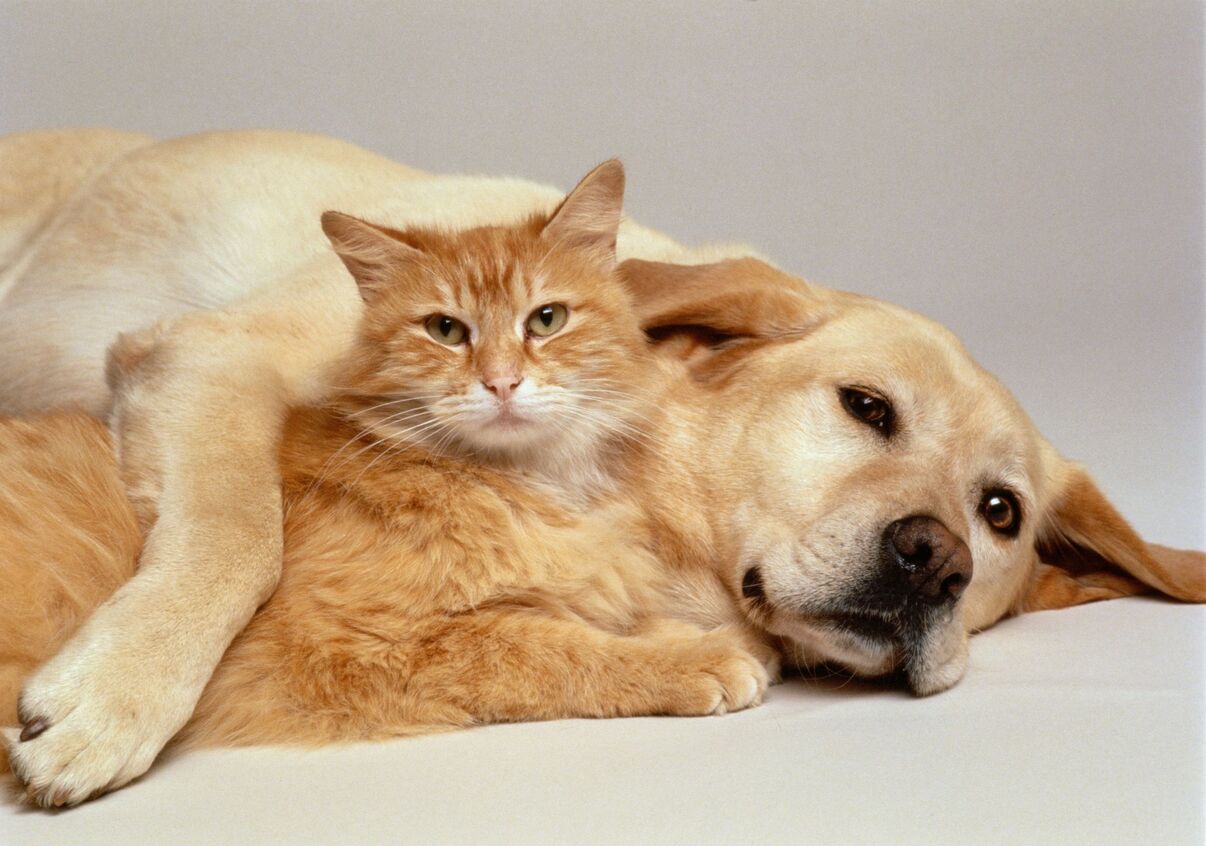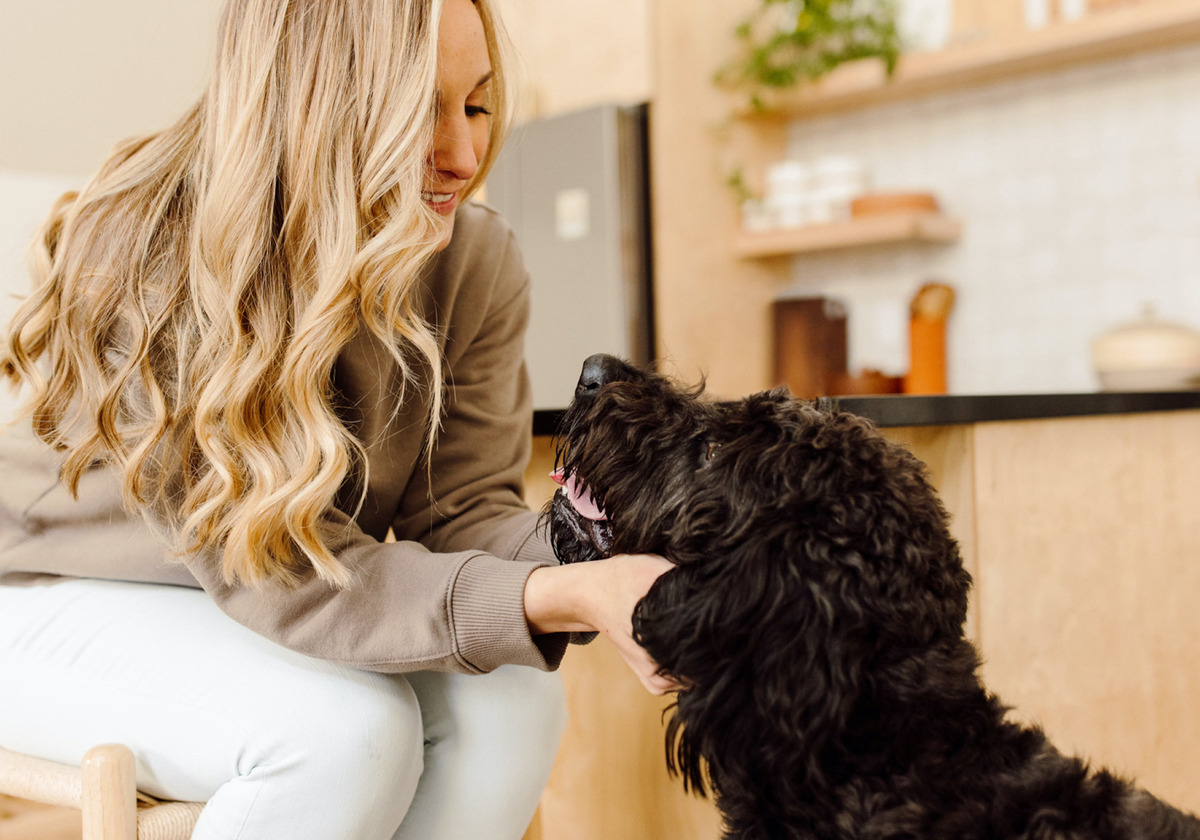Home>Health & Wellness>Common Health Issues>What Parasite Can You Get When Dogs Eat Cat Poop And It Gets Into Their Intestines
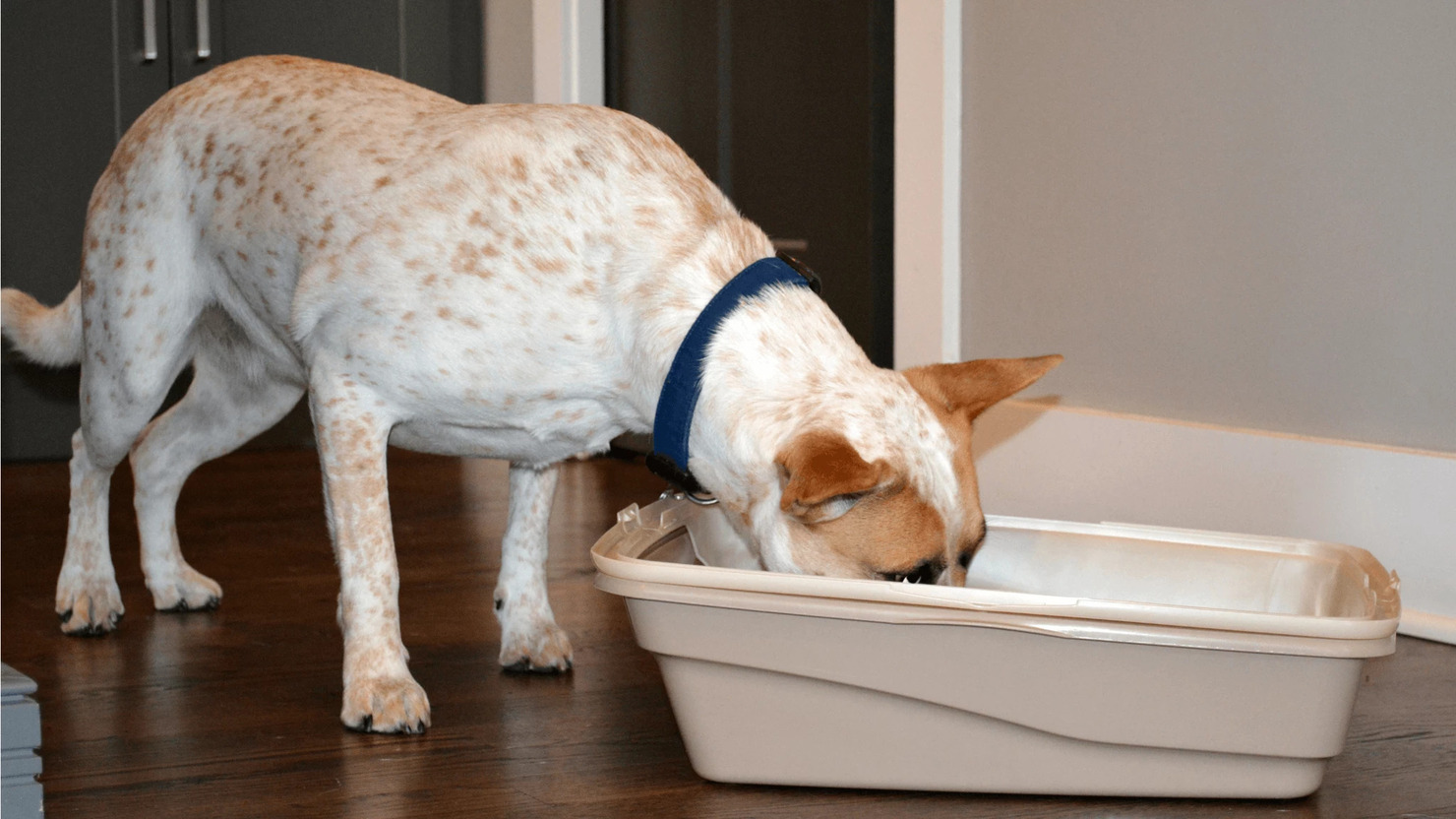

Common Health Issues
What Parasite Can You Get When Dogs Eat Cat Poop And It Gets Into Their Intestines
Modified: March 1, 2024
Learn about common health issues in dogs, including the risk of parasites from consuming cat feces, and how it can affect their intestines. Understand the potential health concerns and how to prevent them.
(Many of the links in this article redirect to a specific reviewed product. Your purchase of these products through affiliate links helps to generate commission for Pawsomeoldies.com, at no extra cost. Learn more)
Table of Contents
Introduction
The sight of a dog eagerly consuming cat feces might seem like a harmless, albeit unpleasant, behavior. However, this seemingly innocuous act can pose significant health risks to our canine companions. When dogs ingest cat poop, they are at risk of contracting various parasites that may lead to intestinal infections and other health complications. Understanding the potential dangers associated with this behavior is crucial for pet owners to safeguard the well-being of their beloved dogs.
In this comprehensive guide, we will delve into the potential health hazards that arise when dogs consume cat feces, the common parasites found in cat poop, how these parasites can enter a dog's intestines, the symptoms of parasitic infections in dogs, preventive measures to deter dogs from eating cat poop, and the available treatment options for parasitic infections in dogs. By shedding light on these critical aspects, pet owners can gain valuable insights into safeguarding their dogs from the adverse effects of ingesting cat feces.
Let's embark on a journey to explore the intricate dynamics of this common yet often overlooked health concern, and equip ourselves with the knowledge needed to ensure the optimal health and well-being of our furry companions.
Understanding the risks of dogs eating cat poop
Dogs are known for their curious and often indiscriminate eating habits, and their penchant for consuming cat feces is a behavior that raises significant health concerns. When dogs ingest cat poop, they expose themselves to a range of potential health risks, primarily stemming from the presence of parasites in the fecal matter. These parasites, including roundworms, hookworms, and Toxoplasma gondii, can wreak havoc on a dog's gastrointestinal system and overall well-being.
One of the primary risks associated with dogs consuming cat feces is the transmission of parasitic infections. Cat feces can harbor a variety of parasites that are harmful to dogs upon ingestion. For instance, Toxoplasma gondii, a protozoan parasite, can cause toxoplasmosis in dogs, leading to symptoms such as lethargy, loss of appetite, and potentially severe health complications. Additionally, roundworms and hookworms, commonly found in cat feces, can infest a dog's intestines, causing digestive disturbances, malnutrition, and in severe cases, anemia.
Moreover, the ingestion of cat feces can also lead to bacterial infections in dogs. The presence of harmful bacteria, such as Salmonella and E. coli, in cat feces can result in gastrointestinal distress and other related health issues for dogs. These bacterial infections can manifest as vomiting, diarrhea, and abdominal discomfort, posing a significant threat to the overall well-being of the affected dogs.
In addition to the direct health risks posed by the parasites and bacteria present in cat feces, the act of consuming fecal matter can also lead to secondary health concerns. Dogs that regularly consume cat poop may experience dietary imbalances and nutritional deficiencies, as the feces may contain undigested nutrients from the cat's diet. This can impact the dog's overall health and vitality, potentially leading to a weakened immune system and susceptibility to various illnesses.
Understanding the risks associated with dogs eating cat poop is crucial for pet owners to recognize the potential harm posed to their canine companions. By gaining insight into these risks, pet owners can take proactive measures to prevent their dogs from engaging in this behavior and mitigate the associated health hazards. Through awareness and preventive strategies, pet owners can safeguard the well-being of their beloved dogs and promote a healthier and happier life for their furry friends.
Common parasites found in cat feces
Cat feces can serve as a reservoir for various parasites that pose significant health risks to dogs upon ingestion. Understanding the common parasites found in cat feces is essential for pet owners to grasp the potential threats to their canine companions. The following parasites are frequently encountered in cat feces and can adversely impact the health of dogs:
-
Toxoplasma gondii: This protozoan parasite is one of the most well-known pathogens found in cat feces. When dogs ingest cat feces contaminated with Toxoplasma gondii oocysts, they are at risk of developing toxoplasmosis. This parasitic infection can lead to symptoms such as lethargy, fever, loss of appetite, and potentially severe health complications, particularly in dogs with weakened immune systems.
-
Roundworms (Toxocara cati): Cat feces often contain roundworm eggs, presenting a significant risk to dogs. Upon ingestion, these eggs can hatch into larvae in the dog's intestines, leading to a roundworm infestation. This can result in digestive disturbances, malnutrition, and in severe cases, intestinal blockages, posing a grave threat to the affected dog's health.
-
Hookworms: Another common parasite found in cat feces, hookworms can cause severe health issues in dogs. When dogs ingest hookworm larvae present in cat feces, these parasites can infest the dog's intestines, leading to symptoms such as anemia, weakness, and gastrointestinal distress. Hookworm infestations can have detrimental effects on a dog's overall well-being if left untreated.
-
Coccidia: Cat feces may contain coccidian parasites, such as Isospora spp., which can cause coccidiosis in dogs upon ingestion. This parasitic infection can lead to symptoms such as diarrhea, dehydration, and weight loss, impacting the dog's health and vitality.
-
Giardia: Giardia is a protozoan parasite commonly found in cat feces, posing a risk to dogs that consume contaminated fecal matter. Giardia infections can result in diarrhea, vomiting, and gastrointestinal discomfort in affected dogs, necessitating prompt veterinary intervention for effective management.
Understanding the prevalence of these parasites in cat feces underscores the importance of preventing dogs from consuming cat poop. By recognizing the potential health risks posed by these parasites, pet owners can implement proactive measures to safeguard their dogs' well-being and mitigate the adverse effects of parasitic infections. Through awareness and preventive strategies, pet owners can play a pivotal role in protecting their canine companions from the detrimental impact of these common parasites found in cat feces.
How parasites can enter a dog's intestines
Parasites found in cat feces can enter a dog's intestines through various pathways, posing a significant risk to the dog's health and well-being. Understanding how these parasites gain entry into the dog's gastrointestinal system is crucial for pet owners to comprehend the mechanisms of transmission and implement preventive measures effectively.
-
Ingestion: The most common route of parasite entry into a dog's intestines is through the ingestion of cat feces. When dogs consume cat poop, they inadvertently ingest the parasitic eggs, larvae, or oocysts present in the fecal matter. Once inside the dog's digestive system, these parasites can hatch, develop, and infest the intestines, leading to parasitic infections and associated health complications.
-
Grooming Behavior: Dogs are known for their grooming habits, and they may come into contact with cat feces while sniffing, licking, or investigating their surroundings. Inadvertently, the parasitic elements present in the feces can be transferred to the dog's fur or paws. Subsequently, during grooming sessions, the dog may ingest the parasites while licking or cleaning itself, facilitating the entry of these harmful organisms into the gastrointestinal tract.
-
Contaminated Environment: In households with both cats and dogs, the environment can become contaminated with cat feces, especially in outdoor areas or shared living spaces. Dogs may encounter cat feces in the yard, garden, or litter box, leading to potential exposure to parasitic elements. Additionally, contaminated soil or water sources can serve as mediums for parasite transmission, further increasing the risk of intestinal infestations in dogs.
-
Indirect Ingestion: In some instances, dogs may indirectly ingest parasites present in cat feces through contaminated objects or surfaces. For example, if a dog's food or water bowls come into contact with cat feces, there is a risk of parasite transfer. Similarly, shared toys, bedding, or other items that have been in contact with cat feces can serve as vehicles for parasite transmission, ultimately leading to the entry of parasites into the dog's intestines.
By understanding the various pathways through which parasites can enter a dog's intestines, pet owners can take proactive measures to minimize the risk of exposure and transmission. Implementing strategies such as diligent waste disposal, maintaining separate living areas for cats and dogs, and regular veterinary check-ups can significantly reduce the likelihood of parasitic infestations in dogs, safeguarding their gastrointestinal health and overall well-being.
Symptoms of parasitic infections in dogs
Parasitic infections in dogs resulting from the ingestion of cat feces can manifest through a range of distressing symptoms, signaling the presence of internal parasites and the potential impact on the dog's health. Recognizing these symptoms is crucial for pet owners to promptly seek veterinary care and implement appropriate interventions to mitigate the adverse effects of parasitic infestations. The following are common symptoms indicative of parasitic infections in dogs:
-
Gastrointestinal Disturbances: Dogs afflicted with parasitic infections may exhibit gastrointestinal symptoms such as diarrhea, vomiting, and persistent abdominal discomfort. These digestive disturbances can lead to dehydration, weight loss, and a noticeable decline in the dog's overall well-being.
-
Lethargy and Weakness: Parasitic infestations can sap the dog's energy and vitality, leading to lethargy, weakness, and a reluctance to engage in regular activities. The dog may appear fatigued and exhibit a lack of enthusiasm for exercise or play.
-
Loss of Appetite: A diminished appetite or refusal to eat can be a telltale sign of parasitic infections in dogs. The presence of internal parasites can cause nausea, discomfort, and a general aversion to food, resulting in a noticeable decrease in the dog's dietary intake.
-
Weight Loss and Malnutrition: Persistent parasitic infestations can lead to malnutrition and weight loss in affected dogs. The parasites may interfere with the dog's ability to absorb essential nutrients from food, resulting in a gradual decline in body condition and overall health.
-
Anemia: In cases of severe hookworm infestations, dogs may develop anemia characterized by pale gums, weakness, and lethargy. Anemia can have serious implications for the dog's health and requires immediate veterinary attention.
-
Abdominal Distention: The presence of intestinal parasites can cause abdominal distention or bloating in dogs. This may be accompanied by discomfort, restlessness, and an observable enlargement of the abdomen.
-
Visible Worms in Feces: In instances of roundworm or hookworm infestations, pet owners may notice the presence of worms in the dog's feces. This visual indication of parasitic infestation warrants immediate veterinary assessment and treatment.
-
Respiratory Distress: Certain parasitic infections, such as lungworm infestations, can lead to respiratory symptoms including coughing, wheezing, and difficulty breathing. These signs necessitate prompt veterinary evaluation to address the underlying parasitic infection.
Recognizing these symptoms of parasitic infections in dogs is essential for pet owners to take proactive measures in safeguarding their canine companions' health. Prompt veterinary consultation and appropriate treatment protocols are crucial in addressing parasitic infestations and mitigating the potential impact on the affected dog's well-being. By remaining vigilant and responsive to these symptoms, pet owners can play a pivotal role in ensuring the optimal health and vitality of their beloved dogs.
Preventing dogs from eating cat poop
Preventing dogs from consuming cat feces is paramount in safeguarding their health and well-being. Implementing proactive measures to deter this behavior can significantly reduce the risk of parasitic infections and associated health complications. The following strategies can be employed to prevent dogs from eating cat poop:
-
Supervision and Training: Maintaining vigilant supervision of dogs, especially in outdoor environments where they may encounter cat feces, is essential. Training dogs to respond to commands such as "leave it" or "drop it" can help deter them from consuming cat poop and reinforce desirable behaviors.
-
Litter Box Management: If cats and dogs coexist in the same household, it is crucial to manage the litter box effectively. Placing the litter box in a location inaccessible to dogs or using specialized enclosures designed to prevent dog access can mitigate the risk of dogs consuming cat feces.
-
Regular Waste Removal: Prompt removal of cat feces from litter boxes, yards, and outdoor spaces frequented by cats can minimize the opportunity for dogs to ingest fecal matter. Maintaining a clean environment reduces the likelihood of exposure to parasitic elements present in cat poop.
-
Dietary Management: Ensuring that dogs receive a balanced and nutritious diet can help reduce their inclination to seek out alternative sources of nutrients, including cat feces. Providing adequate nutrition and meeting the dog's dietary needs can discourage scavenging behaviors.
-
Environmental Restriction: Creating physical barriers or designated areas for cats and dogs can limit their interaction and reduce the likelihood of dogs accessing cat feces. Utilizing baby gates, pet enclosures, or separate living spaces for cats and dogs can help mitigate the risk of fecal ingestion.
-
Behavioral Modification: Identifying and addressing underlying behavioral issues that contribute to dogs consuming cat poop is essential. Consulting with a professional dog trainer or behaviorist can aid in modifying the dog's behavior and discouraging the consumption of cat feces.
-
Supplemental Deterrents: Utilizing commercial deterrent products or natural repellents near areas where cat feces may be present can dissuade dogs from approaching and consuming the fecal matter. These products can emit odors or tastes that are unappealing to dogs, serving as a preventive measure.
By implementing these preventive strategies, pet owners can effectively reduce the risk of dogs consuming cat feces and minimize the potential health hazards associated with parasitic infections. Proactive management, environmental control, and behavioral interventions play a pivotal role in promoting the well-being of dogs and fostering a safe and healthy living environment for pets and their owners.
Treatment options for parasitic infections in dogs
When a dog is diagnosed with parasitic infections resulting from the ingestion of cat feces, prompt and effective treatment is essential to mitigate the adverse effects of these internal parasites. Veterinary intervention is crucial in addressing parasitic infestations and implementing appropriate treatment protocols tailored to the specific type of parasites affecting the dog. The following are common treatment options for parasitic infections in dogs:
-
Anthelmintic Medications: Anthelmintic drugs, such as fenbendazole, pyrantel pamoate, and milbemycin oxime, are commonly prescribed to eliminate intestinal parasites in dogs. These medications target and eradicate various parasites, including roundworms, hookworms, and whipworms, effectively clearing the infestation from the dog's gastrointestinal tract.
-
Antiprotozoal Therapy: In cases of protozoan infections, such as toxoplasmosis or giardiasis, antiprotozoal medications may be administered to combat the parasitic organisms. Drugs like metronidazole and sulfadimethoxine are often utilized to address protozoal infections and alleviate the associated symptoms in affected dogs.
-
Supportive Care: Dogs suffering from parasitic infections may require supportive care to address secondary health issues such as dehydration, malnutrition, and anemia. Veterinary professionals may recommend fluid therapy, nutritional support, and supplemental treatments to bolster the dog's overall health and aid in recovery from the parasitic infestation.
-
Follow-up Monitoring: Following the initiation of treatment, regular veterinary follow-up appointments are essential to monitor the dog's progress, assess the effectiveness of the prescribed medications, and ensure the complete eradication of parasites. Diagnostic tests, such as fecal examinations, may be conducted to confirm the absence of residual parasites in the dog's system.
-
Environmental Decontamination: Concurrent with the dog's treatment, thorough environmental decontamination is crucial to prevent reinfestation and minimize the risk of parasitic transmission. Cleaning and disinfecting living areas, removing fecal matter, and implementing preventive measures to deter dogs from accessing cat poop are integral components of comprehensive treatment strategies.
-
Preventive Measures: Upon successful treatment of parasitic infections, pet owners are advised to implement preventive measures to safeguard their dogs from future infestations. This may include regular deworming protocols, environmental management, and behavioral interventions to deter dogs from consuming cat feces.
By leveraging these treatment options and collaborating closely with veterinary professionals, pet owners can effectively address parasitic infections in dogs and promote the optimal health and well-being of their beloved canine companions. Timely intervention, comprehensive treatment regimens, and proactive preventive measures are instrumental in mitigating the impact of parasitic infestations and fostering a healthier life for dogs.
Conclusion
In conclusion, the act of dogs consuming cat feces poses significant health risks due to the potential transmission of parasites and bacteria found in the fecal matter. The presence of parasites such as Toxoplasma gondii, roundworms, hookworms, and other pathogens in cat feces can lead to parasitic infections in dogs, resulting in a range of distressing symptoms and health complications. Furthermore, the ingestion of cat poop can contribute to dietary imbalances, nutritional deficiencies, and secondary health concerns, impacting the overall well-being of dogs.
Understanding the risks associated with dogs eating cat poop is crucial for pet owners to recognize the potential harm posed to their canine companions. By gaining insight into the common parasites found in cat feces, the pathways through which parasites can enter a dog's intestines, and the symptoms of parasitic infections in dogs, pet owners can take proactive measures to prevent their dogs from engaging in this behavior and mitigate the associated health hazards.
Preventive strategies such as supervision, training, litter box management, regular waste removal, dietary management, environmental restriction, behavioral modification, and the use of supplemental deterrents can effectively deter dogs from consuming cat feces. These proactive measures play a pivotal role in safeguarding the health and well-being of dogs, fostering a safe and healthy living environment for pets and their owners.
In the event of parasitic infections resulting from the ingestion of cat feces, prompt veterinary intervention is essential to address the infestation and implement appropriate treatment protocols. Anthelmintic medications, antiprotozoal therapy, supportive care, follow-up monitoring, environmental decontamination, and preventive measures are integral components of comprehensive treatment strategies aimed at mitigating the impact of parasitic infestations and promoting the optimal health of dogs.
By raising awareness of the potential health risks associated with dogs consuming cat feces and equipping pet owners with the knowledge and resources to prevent, recognize, and address parasitic infections, we can collectively work towards ensuring the well-being and vitality of our beloved canine companions. Through proactive management, environmental control, and collaborative efforts with veterinary professionals, we can create a safer and healthier environment for dogs, fostering a fulfilling and vibrant life for our cherished pets.
